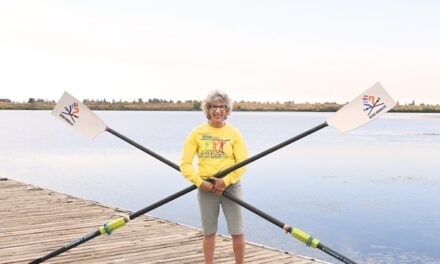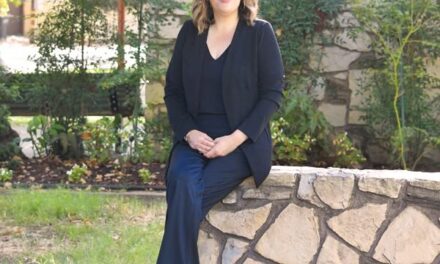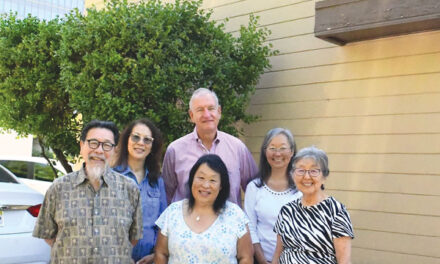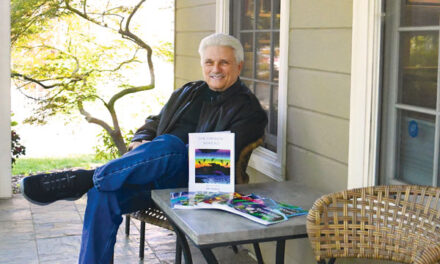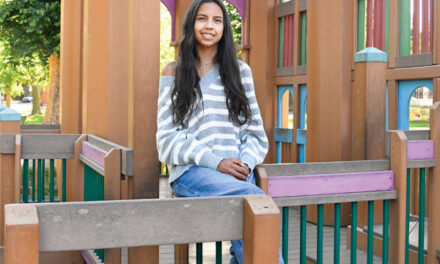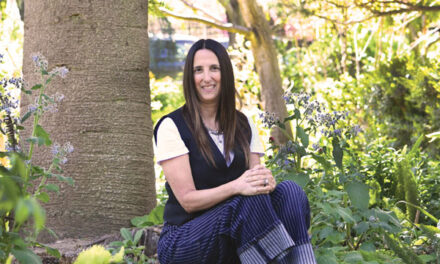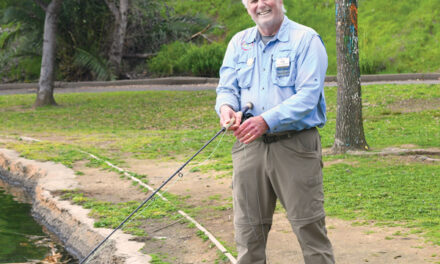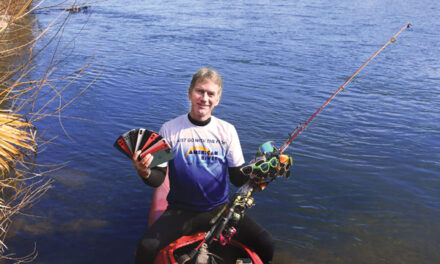Have you ever looked up at the night sky and wondered what you were looking at? Chuck Real could probably tell you, as could the roughly 200 other members of the Sacramento Valley Astronomical Society, one of the oldest astronomy clubs in America.
Founded in 1945 by 50 amateur astronomers, SVAS is celebrating 75 years as an educational nonprofit dedicated to teaching people about the beauty and complexity of the cosmos. For Chuck Real, who took over as SVAS president in March, the organization’s activities are a way of sharing his lifelong love of astronomy with amateurs young and old.
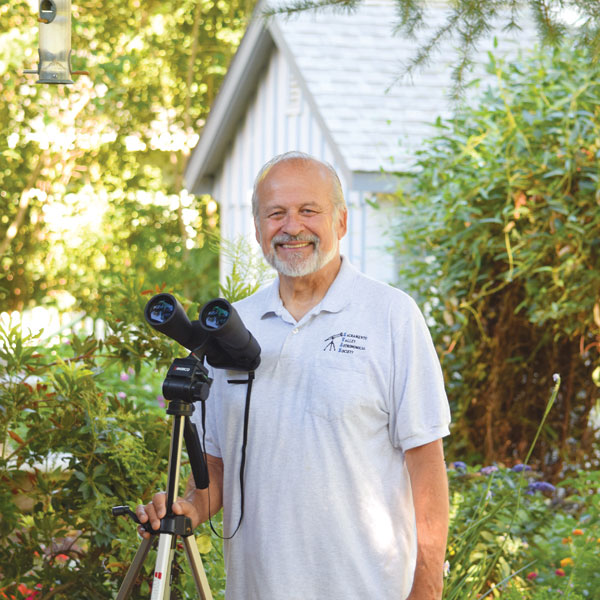
“When I was a very young boy of about 7 or 8, my mother bought a microscope for me and a telescope for my brother for Christmas,” recalls Real, who lives in Orangevale. “Well, I already had an interest in astronomy, so my brother and I traded instruments. With that tiny little Gilbert telescope, I could see craters on the moon and rings on Saturn. At that age, anything can inspire you, and it just ignited my flame.”
Real was so awed by astronomy that he built his own telescope in junior high and settled on becoming a scientist. In college, his interest shifted to earth science. “Instead of looking up, I started looking down,” he says.
He went on to earn a graduate degree in geophysics specializing in seismology. In 2013, he retired from a 40-year career with the California Geological Survey as a seismologist working on identifying earthquake hazard zones. He won a lifetime achievement award from the Western States Seismic Policy Council for his work putting together legislation, following the Loma-Prieta earthquake in 1989, that established a $4 million program that uses satellites to map earthquake hazard zones.
Once he retired, Real knew exactly what he was going to do: return to his childhood love of studying the stars. He joined the SVAS board in 2009 as a way to learn the ropes and he’s been a board member ever since, helping plan and execute the organization’s monthly Star Parties, where members and guests bring telescopes, or borrow one from SVAS, and study the night sky together.
He has also helped plan Star Parties for schools and community organizations, observing trips, telescope-making workshops and other public outreach events.
“Nothing is more rewarding than seeing kids have their first views through a telescope,” Real says.
SVAS also operates members-only research observatories in the Sierra mountains and offers scholarships to students who are majoring in physical sciences or mathematics with a focus on astronomy or space sciences. Real says that one of the group’s greatest successes is Heidi Poppelreiter Parris, winner of an SVAS scholarship in 2001 who went on to study aerospace sciences in college and work as a flight controller in Mission Control (responsible for the real-time navigation of spacecraft to the International Space Station) at the NASA Johnson Space Center in Houston.
Though COVID-19 has brought Star Parties and other in-person gatherings to a halt, Real says that technology has been a saving grace, allowing SVAS members to stay connected with virtual meetings and remote observing—as well as launching an exciting new era of astronomical study.
“Astronomy is in a renaissance,” Real says, because of technology like the astro-video camera. The Canadian invention, based on night-vision security cameras, is 40,000 times more sensitive than the human eye and allows a small telescope to capture light similar to a giant observatory telescope. Chuck Real made sure to buy one for SVAS.
“We’re learning something new every day about the workings of the universe,” he says. “You can’t imagine how engaged students are seeing beautiful images of color emissions from nebula and galaxies on their own screens. Technology makes the whole hobby of amateur astronomy different—it ignites that spark.”
For more information, visit svas.org.
Jessica Laskey can be reached at jessrlaskey@gmail.com. Follow us on Facebook, Twitter and Instagram: @insidesacramento.




